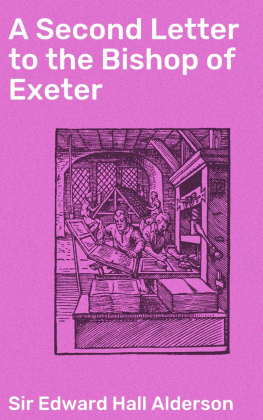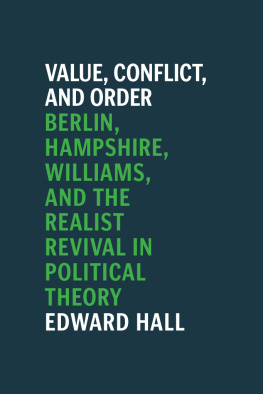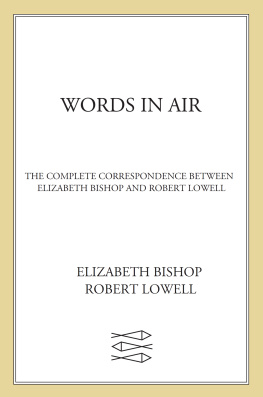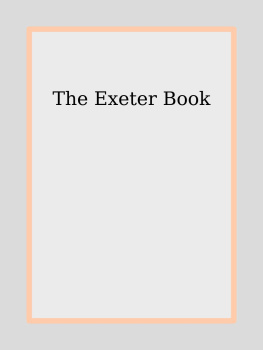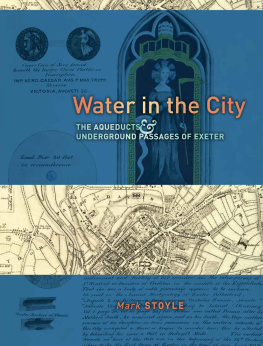A LETTER.
Table of Contents
My Dear Lord ,
I TRUST I can now satisfy you that we have both been labouring under a great mistake for some time, and that after all no ecclesiastical rule can properly be said to have been violated by the judgment of the Privy Council in the Gorham Case, but that it is quite right that the Crown should have the jurisdiction in such a case which they have actually exercised.
The question then is this, What is the real nature of the suit called Duplex Querela? For a suit it is no doubt, (though I had at one time thought otherwise) and one too in the Archbishops Court. You will find from our older authorities that the Archbishops of Canterbury in former times used to claim the right of interfering in their comprovincial dioceses per simplicem querelam, i.e. as I believe, of acting, so to speak, in all cases as joint ordinary with each Bishop throughout their province. This claim of jurisdiction is specially mentioned and discussed in Gibsons Codex. This right, however, was disputed and given up, and the jurisdiction was ultimately confined to those cases alone in which, after an application to the Comprovincial Bishop, he had heard the Clerk and decided wrongly against him. This right the injured Clerk pursued by the process called the Duplex Querela, a process there is some reason to believe peculiar to the province of Canterbury, and arising from the legatine jurisdiction of that Seeas it is well known that the Archbishops of Canterbury anciently claimed to be legati nati of the Pope. But whether this be so or not, it is clear that either on this ground or as metropolitans, they have always exercised this jurisdiction within their province. I cannot find any instance of the Archbishop of York doing this, which inclines me to this hypothesis of the legatine jurisdiction. If this be the nature of the Duplex Querela it is manifest that it consists really of two parts wholly separate and distinct from each other; one, a suit in the Archbishops Court for the purpose of determining whether the Archbishop has in the particular case, this jurisdiction: and this depends on the question whether the Bishop has committed an error;and secondly, a claim by the Clerk that if the Archbishop has jurisdiction he shall act or proceed to institute the Clerk as upon a presentation made to himself in his own diocese.
Now the suit, and of course the Appeal to the Privy Council, is, properly speaking, confined to the first branch alone. If the Archbishop decides against the Bishop, the latter then appeals to the Crown to prevent the Archbishop from improperly infringing on his Diocesan rights, and if the Crown, upon argument before the Delegates or Privy Council, think the Bishop right they will by their judgment overrule the Archbishop and prohibit him thereby from proceeding. On the contrary, if they think the Bishop wrong, they will leave the Archbishop to proceed to the second branch, the consequence of his decision, and will direct him to act at his discretion in instituting the Clerk, if on examination he finds him fit.
Or suppose the Archbishop, agreeing with the Bishop, has dismissed the Clerks suit in his Court. The Clerk then appeals to the Crown, and the Privy Council hear it. If they think the Bishop originally wrong in his refusal, and therefore that the Archbishop ought to have acted on his jurisdiction, they order him to proceed so to do, and he then proceeds, as in duty bound, to act as he would have done if the living were in the Diocese of Canterbury.
The Privy Council do not order the Archbishop to institute as a mere ministerial act; they have no jurisdiction to do that, but they have a jurisdiction to compel him to exercise his Archiepiscopal discretion in that case.
Now the very nature and course of the proceedings shows that this is so. The judgment is, that the suit be remitted to the Archbishop that right may be done. This cannot mean an order to institute at all events. The presentation itself is not officially before the Privy Council at all, and consequently they do not judicially know of its existence. The meaning of the judgment must therefore be, that if presented (and why not if fit also?) he be instituted. And what does the Archbishop in his court proceed to do upon this? The first process is to summon the Bishop to bring in the presentation, which being THEN and not till then, before the Archbishop, he proceeds to exercise his discretion, as to institution, regularly. Now if this be not exercised by examination of the Clerk, these absurdities would follow. 1st, No provision would be made for heresy or crime committed between the examination by the Bishop and the institution by the Archbishop, and yet this interval may be one of many months or years. It would be obviously absurd to institute upon an antecedent supposed fitness, instead of a fitness properly ascertained at the time of institution. The solemn words of institution, accipe curam meam et tuam, would forbid such a conclusion. Besides, if the sufficiency of the examination before the Bishop is to be the sole criterion, in what way is an examination merely frivolous, one which neither shows affirmatively nor negatives heresy or unfitness to be dealt with? Such an examination would be indeed a perfectly sufficient warrant for the exercise of the Archbishops jurisdiction, but would be manifestly insufficient for his institution of the Clerk. Indeed it might even open a door to fraud. For a Bishop knowing a man presented to him was a heretic or ignorant person, and being desirous to favour him, though not willing himself to take the odium of institution, might reject him on some frivolous or insufficient pretence, and so deprive the Archbishop of all discretion in the matter, and throw on him the disgrace of instituting a manifestly insufficient clerk.
Again, another absurdity follows, if the law be not as above suggested. There is no authority for saying, that where the Archbishop on a presentation really to himself rejects the clerk, the latter has any remedy by duplex querela at all. It seems probable, therefore, that here the Archbishops decision is final; but, if the judgment of the Privy Council, be a judgment ordering institution, it would follow that though the judgment of the Archbishop alone was final, his judgment when confirming that of the Bishop was not so. But, on the other hand, if the judgment of the Privy Council really be only that the Archbishop shall exercise his jurisdiction, the two cases become parts of one uniform and harmonious system. It is some confirmation of these views also, that in the case of a Quare Impedit, when the fitness of a clerk is alone the question before the court of law, which it sometimes is, it is pretty clearly laid down that the fitness in issue before the court, is not the fitness at the time of the refusal by the Bishop, but the fitness at the time of the certificate of the Archbishop. It is this which is to decide the case. And this only takes place if the clerk be living, which circumstance clearly points to the conclusion that the Archbishop is to examine him personally and de novo, that he may be enabled to make that certificate.
I therefore, for all these reasons have come to the conclusion that after all the only effect of the judgment of the Privy Council was to send Mr. Gorham before the Archbishop of Canterbury, in order that he might judge, after examining him at his discretion, whether he, the Archbishop, thought him a fit person to be instituted to the living of Brampford Speke, and in that event only to institute him as on a presentation to himself. Now, if this be so, what ecclesiastical rule is violated by this proceeding? Ought not the Crown, as governing all estates of men, ecclesiastical or civil, within the realm, to decide on the one hand whether an Archbishop infringes the Diocesan rights of a Bishop, or on the other hand whether he refuses to give redress to a Clerk unjustly oppressed by the Bishop? Ought not the Crown to prohibit the Archbishop from proceeding in the one case, and to order him to act in the other; in the latter case however, not directing him what to do when he exercises this jurisdiction?


